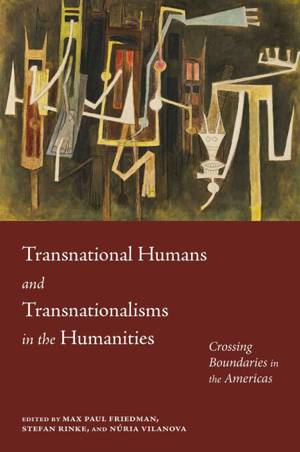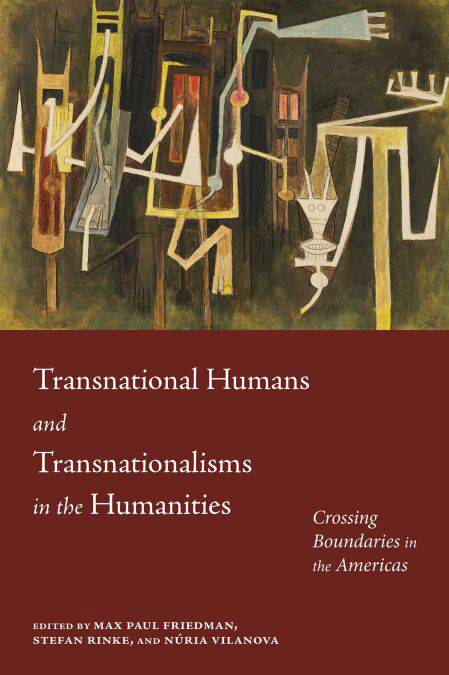
- Afhalen na 1 uur in een winkel met voorraad
- Gratis thuislevering in België vanaf € 30
- Ruim aanbod met 7 miljoen producten
- Afhalen na 1 uur in een winkel met voorraad
- Gratis thuislevering in België vanaf € 30
- Ruim aanbod met 7 miljoen producten
Zoeken
Transnational Humans and Transnationalisms in the Humanities E-BOOK
Crossing Boundaries in the Americas
€ 36,90
+ 36 punten
Omschrijving
This unique anthology from scholars across the humanities and allied fields presents a vivid picture of the state of scholarship on transnationalism today.
Are we living in a transnational world? The 900 percent rise in the use of “transnationalism” in publications since 1995 testifies to a defining phenomenon. International migration has increased two-thirds since 1980, and the global circulation of capital, media, and culture has intensified, provoking nationalist political backlash worldwide.
This collection of studies on exile, social science, indigeneity, gender activism, music and dance, gangs, sex work, narcofiction, and cinema examines how transnational forces influence racial difference, national identity, immigrant exclusion, state power, and cultural expression in the Americas. It explores how the physical and symbolic movement of humans and their artifacts shapes ideas and challenges accepted notions of national and conceptual boundaries among them. By addressing the impact of digital technologies on spatialization, by challenging emerging conventions on transnationalism, and by fostering interdisciplinary exchange, the book enriches our understanding of transnational lives and provides tools for exploring the transnational turn.
Are we living in a transnational world? The 900 percent rise in the use of “transnationalism” in publications since 1995 testifies to a defining phenomenon. International migration has increased two-thirds since 1980, and the global circulation of capital, media, and culture has intensified, provoking nationalist political backlash worldwide.
This collection of studies on exile, social science, indigeneity, gender activism, music and dance, gangs, sex work, narcofiction, and cinema examines how transnational forces influence racial difference, national identity, immigrant exclusion, state power, and cultural expression in the Americas. It explores how the physical and symbolic movement of humans and their artifacts shapes ideas and challenges accepted notions of national and conceptual boundaries among them. By addressing the impact of digital technologies on spatialization, by challenging emerging conventions on transnationalism, and by fostering interdisciplinary exchange, the book enriches our understanding of transnational lives and provides tools for exploring the transnational turn.
Specificaties
Betrokkenen
- Uitgeverij:
Inhoud
- Aantal bladzijden:
- 344
- Taal:
- Engels
- Reeks:
Eigenschappen
- Productcode (EAN):
- 9780826368720
- Verschijningsdatum:
- 1/12/2025
- Uitvoering:
- E-book
- Beveiligd met:
- Adobe DRM
- Formaat:
- ePub

Alleen bij Standaard Boekhandel
+ 36 punten op je klantenkaart van Standaard Boekhandel
Beoordelingen
We publiceren alleen reviews die voldoen aan de voorwaarden voor reviews. Bekijk onze voorwaarden voor reviews.







